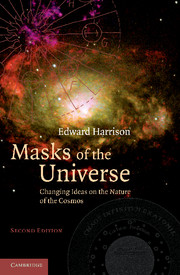19 - Learned Ignorance
Published online by Cambridge University Press: 27 October 2009
Summary
As the light of knowledge spreads and brightens,
the shadows of learned ignorance gather and darken
In his work On Learned Ignorance, written in 1440, Cardinal Nicholas of Cusa argued that although the darkness of “unlearned ignorance” disperses in the light of growing knowledge, there is another side to ignorance, which he called “learned ignorance,” that grows with knowledge. “No man, not even the most learned in his discipline, can progress farther along the road to perfection than the point where he is found most knowing in the very ignorance that embraces him; and he will be the more learned the more he comes to know himself for ignorant.”
Consider the unlearned person, unaware of his ignorance, who thinks he knows everything! As knowledge increases, ignorance decreases, yet this kind of ignorance – unlearned ignorance – is merely the absence of knowledge. With knowledge comes an awareness of ignorance – learned ignorance – and the more a person knows, the more aware that person becomes of what he does not know. Learned and unlearned ignorance are like day and night.
The principle of learned ignorance at first comes as a surprise. “Knowledge is power” says the proverb. We acquire learning seeking to extend the horizon of our knowledge. Education uplifts the mind and dispels ignorance. Issues that arise in the learning process that at first are puzzling are subsequently resolved in the corpus of greater knowledge. But, as the learned cardinal said, the penalty of knowledge is doubt.
- Type
- Chapter
- Information
- Masks of the UniverseChanging Ideas on the Nature of the Cosmos, pp. 305 - 310Publisher: Cambridge University PressPrint publication year: 2003

